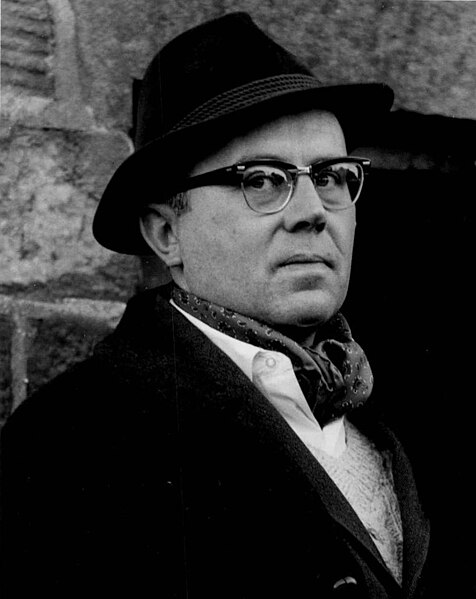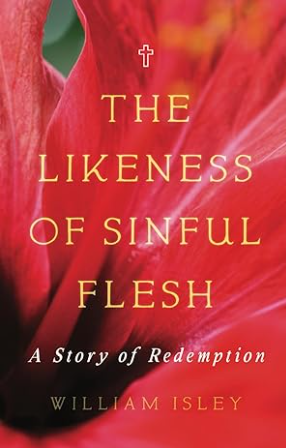I am a fan of literature and film that can be classified as gothic, a genre that encompasses stories of the supernatural, places inhabited by ghosts, demonic and angelic spirits, with dark, dangerous, and frightening atmospheres that human characters are caught in. To those who share similar tastes and even to those who do not, I highly recommend Russell Kirk’s collection of tales, Watchers at the Strait Gate (Sauk City, WI: Arkham House Publishers, Inc, 1948) for four reasons:
- To experience that chilling sensation of the fearful “other.”
- To cultivate and mature your literary taste.
- To appreciate Kirk’s contemporary urban settings which incarnate the spiritual forces.
- To furnish your moral imagination.
Certainly, one of the peculiar pleasures of the gothic is the thrill of being frightened. However, the sudden rise in our pulse can be easily provoked merely by someone shouting “boo” or the unexpected thump of a book hitting the floor. The fun of being frightened is fine, but the gothic can evoke a deeper, more significant experience—the eerie and uncanny, the awareness of finding oneself in the presence of an “other,” a being or force that is not us, even like us, and for good or ill threatens to undo the comfortable regularity of our quotidian life or perhaps our very soul.
This experience of the other depends largely upon atmosphere, whether in life or literature, and Kirk’s Watchers delivers atmosphere in spades. He does this in two ways: detailed descriptions of the characters and places employing expertly a highly literary vocabulary and often placing these gothic, even horror, stories in a contemporary urban setting. The reader will find in Watchers a dark fortress-like Romanesque building in the midst of evil urban decadence (“The Invasion of the Church of the Holy Ghost”), a wife’s room filled by her wicked husband with “prints of those exquisitely horrid Flemish and German and Italian medieval-renaissance hells, their multitudinous tiny insect-devils flaying their innumerable little damned souls” (“The Sullen Surly Bell,” 58), a derelict house of a wealthy miser in incredibly squalid conditions (“Fate’s Purse”), and the old rectory of a priest at 3:00 in the morning hearing noises in the midst of a winter’s storm (“Watchers at the Strait Gate”). One even encounters a doppelgänger and a young woman with the second sight in Kirk’s charming tribute to Sir Walter Scott, one of his favorites, “The Reflex-Man in Whinnymuir Close.” The story captures the flavor and the antiquated dialect of Scott’s novels while challenging the modern reader’s understanding but also leads to the fun of discovering unfamiliar words.
Looking up words. Plowing through descriptions. Where’s the action? Doesn’t this hold up the story? Such a reaction reveals the immaturity of the impatient reader. There is the need to develop the literary palate just as there is with the gustatory palette. Wolfing down an open-faced peanut butter and jelly sandwich (one of my favorites, much to my wife’s dismay) is a delight, but it would be a shame and not particularly good for our health to limit our diet to it. There is immense pleasure and value in learning to appreciate fine foods savored slowly in an elegant setting with engaging conversation.[1]
The development of taste in literature allows us to enjoy excellent prose of carefully delineated scenes and characters. More than that, we learn that those descriptions enable us to understand the action in the context of the whole story. This is especially true in Kirk’s ghostly tales in which the settings incarnate the spiritual forces of good and evil.
As I mentioned before, one feature of several of Kirk’s stories is to place them in contemporary urban America rather than in English graveyards and castles. These urban settings and often their architecture display a decadence that seems to incarnate evil spirits and in which individual souls follow a path to damnation or struggle for redemption. They also highlight the strongly moral cast of his fiction.
The moral cast of Kirk’s fiction should remind us that he was one of the chief architects of the renaissance of post-World War II conservative thought and that one of his major contributions was to bring to the fore Edmund Burke’s concept of the moral imagination. Here the imagination is not understood to be a faculty that makes up things that do not exist. Rather, the imagination is the vehicle for our ideals, both of individual virtue and a healthy society. These ideals are not the fruit of arid speculative reason but come clothed in images that have shaped us.
The crucial role of images means that literature is important in forming the imagination. Kirk’s gothic stories grip us with images of good and evil spirits that inhabit a place or a person. The subtitle of the collection “Geister-dämmerung” or “spirits of the twilight” reveals not only Kirk’s erudition but also the character of these stories.[2] The twilight is a time of change, whether to light or darkness. In that ambiguous twilight time with spirits present the individuals in these stories make choices that place them squarely on a path to salvation or judgment, both temporal and eternal. Whether the spirits are evil working to violate a young maiden or corrupt a struggling priest or good ones acting to destroy a gang (“The Invasion of the Church of the Holy Ghost”), save individuals from financial ruin by mobsters (“Uncle Isaiah”), or even helping someone grappling with who he is and was as a boy and then as an old man (“An Encounter by Mortstone Pond”), we are led to consider our times and ourselves.
Unfortunately, Watchers at the Strait Gate is out of print and hard to come by, but it can be purchased second hand or perhaps obtained through interlibrary loan. Someone really should publish a new collection of Kirk’s stories.[3] In spite of these difficulties, I encourage you to find a copy, enjoy some creepiness, get that feeling that you need to look over your shoulder, but, above all, begin to see the possibilities of this world and even yourself as a twilight place in which we must and do make decisions that shape ours and others’ lives and destinies.
[1] For more on this theme, see my “The Sin of the Impatient Reader.” https://billisley.com/2015/06/the-sin-of-the-impatient-reader/
[2] Kirk’s erudition is on full display and profitably so with quotations from T. S. Eliot, the prophet Isaiah, Shakespeare, Milton, John Henry Newman, and others. By following the trail of these references alone one could make a good start in a liberal education, deepening one’s knowledge of the great writers dealing with the great questions while also improving one’s appreciation of fine writing.
[3] I have not seen but understand that Ancestral Shadows, published by Eerdmans in 2004 with an introduction by Vigen Guroian contains all these stories plus those from Princess from All Lands, but it too is expensive and not easily available.


